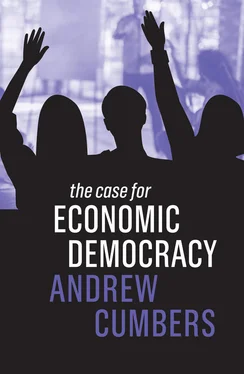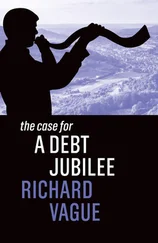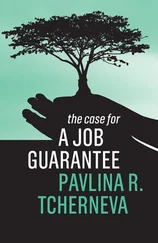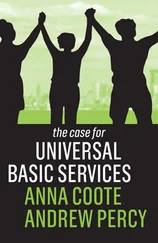Special thanks are also due to David Featherstone for his broader insights on progressive and radical thought. Outside Glasgow, Thomas Hanna, Joe Guinan and Gar Alperovitz of the Democracy Collaborative, Andy Pike and Danny MacKinnon at CURDS, Geoff Whittam and Katherine Trebeck have all in different ways been a source of ideas, debate and creative thinking that have helped me clarify and refine my arguments over the past decade. Thanks also to George Owers, my editor (plus three anonymous referees) for the perceptive and insightful thoughts and comments that have greatly improved the book. All remaining errors are of course mine. Thanks also to George and Julia Davies at Polity for their patience and support through the numerous missed deadlines. Anni Pues has, as ever, been an ever-present source of love, encouragement and inspiration. Finally, thanks to Anna and David for their constant reminders that there is more to life than work.
As we enter the third decade of the twenty-first century, the world is at a crossroads with a number of inter-related economic, ecological and political crises. Economically, there are widening inequalities between rich and poor, and a growing chasm between the elite billionaire class and the rest of us. Linked to this unequal and imbalanced system of global capitalism, we face an environmental catastrophe with global warming brought on by two centuries of rampant industrialization and ill-considered economic growth. Even if we can mitigate its worst effects, the rapid depletion of our natural resources in pursuit of profit threatens to leave the planet barely fit for habitation by future generations. Taken together, these economic and ecological crises are producing a third crisis, the focus of much public debate and angst among media, academic commentators and our ruling classes. This is the crisis of democracy itself.
When most people talk of democracy, they are almost certainly thinking about political democracy with a capital ‘P’: elections, representative government, political parties, the relations between parliament and the public. Very little consideration is given to whether the economy itself should also be thought of in democratic terms. Yet, how the economy functions, who controls it and makes key decisions regarding how it functions, what is produced and who benefits, is fundamental to everything else in our lives. Accessing the economic resources to lead decent lives, doing so in a way that is fair to others, and sustainable in caring for the planet and future generations, should surely be at the core of our discussions about democracy.
This book is motivated by the absence of these issues from public debate. In writing it, I aim to put the question of democratizing the economy back onto the agenda, making the case for economic democracy an important step in dealing with the manifold crises that we face. From the outset we should note that democracy – by any meaningful definition of the term – is absent both from the workplace and the wider economy. In the workplace, workers have diminishing rights over enterprise decision making, trade unions are in retreat and collective bargaining is under attack. There is still a tradition of cooperatives and employee-owned enterprises, nominally committed to democratic practice, though these are marginal to the dominant corporate and privatized economy. More broadly, whether we are talking about the big macroeconomic decisions, such as the setting of interest rates, fiscal decisions about how much tax and spending is required (apart from highly superficial election-time debates), or more fundamental questions over what forms of economic organization, ownership and institutions are required to combat the climate emergency, the broader public has little real say or participation in how the economy functions.
It is my view that the absence of democracy from the economy is a fundamental crisis in itself. A functioning democracy, in a stable and civilized society, is one that respects the rights of individuals, citizens and communities to participate on equal terms in the public and civic realms of that society. Given the central importance of the economy in providing the resources necessary for a society to flourish, the decision making around these resources should be a matter for public engagement and democratic debate.
From this departure point, my intention with this book is to make a renewed case for economic democracy appropriate for our times. To do this, I develop an expansive sense of economic democracy and how this might be applied in the twenty-first century. This involves addressing a set of issues around what concepts, institutions and political agency are required to enable us to move from a capitalist, largely privatized and marketized economy – driven by narrow self-interest and greed – towards a more democratic economy, capable of serving the common good in tackling the ever more prescient social and ecological crises that we face.
The economic roots of the democratic crisis
The re-emergence of an authoritarian, xenophobic and fundamentally anti-democratic right-wing politics, symbolized by Donald Trump’s US Presidency, is one of the key features of our time. On every continent, the retreat from universal human rights, international solidarity, respect for minorities, a tolerance of migrants and refugees and a commitment to shared solutions to global problems is a disturbing reality. As I write (in July 2019), a striking fact is that none of the world’s ten most populated countries, which includes ‘nominal’ democracies such as Brazil, Russia, India and the United States, is listed by the Economist Intelligence Unit (EIU) as a ‘Full Democracy’ in its 2018 Democracy Index, which measures among other things, the commitment to pluralism, civil liberties and political culture. The EIU has noted ‘a broad-based deterioration in the practice of democracy in recent years’ (EIU 2017: 3).
Among many liberal academic and political commentators, there seems general agreement on what the problem is: a growing chasm between global elites and an increasingly disaffected populace, in part characterized as a ‘deepening divide between people and experts’ as the EIU puts it. The rejection of the existing political system leads to support for faux ‘outsiders’ – those members of the economic elite, like Trump, who can successfully position themselves to appeal to underlying nationalist and racist tropes among key voter groups, especially those ‘left behind’ by economic globalization.
While the crisis of democracy is now a central trope of mainstream commentary, there is seldom much discussion of the underlying economic system of global capitalism, which I would argue is the root cause of this malaise. The democratic crisis is usually talked of as a separate event to the almost four decades of rapacious wealth and income accumulation by global elites alongside stagnant real wage growth amongst workers and the decline of regular jobs capable of providing a decent income to afford basic necessities for many people on the planet. The threat to regular low-skilled and even more skilled, but routine, work by automation in the future threatens to deepen this jobs crisis, adding more grist to the mill of right-wing populists. The collapse of well-paid and unionized industrial jobs in Europe and North America, and the shift of work to China and other parts of the Global South, has fuelled a reaction against globalization, or at least its neoliberal free trade form, which right-wing autocrats, rather than a more progressive left, have capitalized on. A slide into a dark Fascistic politics reminiscent of the 1930s is not far away unless we are able to fashion a very different kind of economy to the one we have now.
Читать дальше












